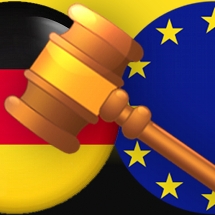Future Of German Online Gambling And The ISTG

Gambling is very popular in Germany, and in 2012 the country replaced its Interstate Gambling Treaty (2008) with the Interstate Treaty on Gambling (ISTG). This particular piece of gambling regulation, however, attracted a great deal of criticism from the EU commission with one sticking point being that it basically restricted online gambling to just sports betting, while casino and poker games were prohibited by law.
Nevertheless, the very same year the Interstate Treaty on Gambling was imposed on all German states, with only Schleswig Holstein rejecting it in favor of a more liberal law. In the northernmost of Germany’s sixteen states, many operators subsequently managed to obtain online gambling licenses, with more than 50 licenses granted at the start of 2013, alone. Even though, one year later the state performed a spectacular U-turn and brought itself in line with the ISTG, nevertheless leaving 23 sports betting licenses and 13 online poker licenses still in effect until 2018.
In the meantime, having two different gambling laws has generated a wide range of issues, as well as lawsuits, in Germany, with some experts suggesting that the state monopoly on online gambling and its prohibition on online gambling was unlawful by European Court of Justice standards.
Unregulated iGaming Industry
In 2012, the Germany’s gambling industry generated €10.73 in gross proceeds, of which 15%, or €1.57 billion, was derived from the unregulated market. From that figure, online casinos accounted for 22.7% of proceeds, while the poker industry on its own was responsible for 19.2%. In terms of regulated sports betting, a study by Goldmedia has forecast a growth rate of more than 5.8% from 2014 until 2017, when it should reach around €7.894 billion as more people turn to betting on sports.
ISTG May Not Survive
Even though the ISTG is supposed to last until 2021, many experts believe the legislation may not survive much longer as it is currently the subject of a range of legal and political disputes. Even the European commission has voiced concern over the ISTG’s ability to be fair, especially as its uncompetitive restrictions include placing limitations on the number of licenses issued, as well as the exclusion of online casino and poker from its consideration. Highlighting the challenges faced by German states implementing the ISTG, casinonewsdaily.com wrote:
“..the Hessian Ministry of the Interior has said it projects license applicants may file over 80 lawsuits, no matter of what the licensing procedure outcome may be. According to the Ministry, unsuccessful applicants may demand a review of their unfruitful participation, while a number of future licensees may probably litigate against unattractive license conditions.”
Future Of German iGaming
In June 2012, the European Court of Justice (CJEU) stated that Schleswig Holstein’s gambling regime was not inconsistent with EU legislation, judging that despite being a German state, the jurisdiction was still entitled to have its own rules when it comes to gambling. Moreover, the CJEU said that the licenses issued by Schleswig-Holstein did not extend to the rest of Germany, and that it was OK for a country to have two different online gambling licensing regimes. In the meantime, the ISTG continues to restrict online gambling in Germany, although there’s hope the country’s iGaming rules will become more flexible as time passes. As things currently stand, however, such a change may not occur until at least 2018, although one can only at least hope for a faster resolution.
Online Players Beware
Whilst Germany’s online gambling industry remains in a chaotic state, it is not just the operators who have been discriminated against and at the beginning of 2015 an unfortunate German resident had €63,490 of his online blackjack winnings confiscated by authorities, and was subsequently fined for illegal gambling by the Munich District Court. A few months later, and an Italian man living in Germany was similarly shocked after he was refused access to more than €40,000 of online gambling winning by his German bank. The Sicilian player by the screen name ‘RuiDeck’ had won the money on PokerStars, but when he attempted to withdraw the money from the bank he was told internet poker is against the law in Germany, and that his winning were now frozen. Not quite ready to give up yet, ‘RuiDeck’ is currently considering fighting the case in a Dresden court.










